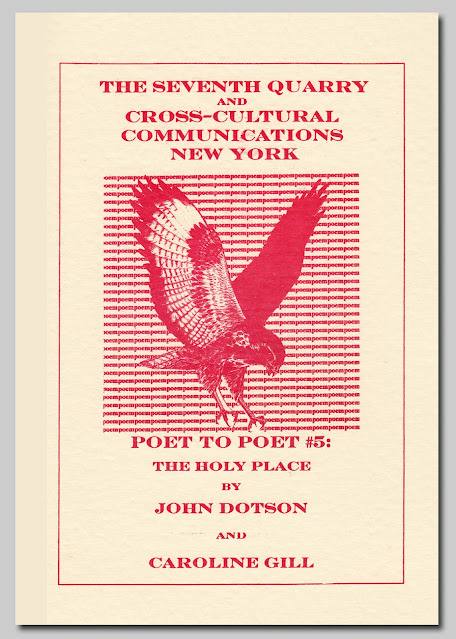 |
| Swallowtail, NWT Hickling Broad, Midsummer's Day 2022 |
I grew up in rural Norfolk from the age of twelve and often heard about the Swallowtail butterflies that had once graced the Broads in days before their marshland habitat was drained for the intensive growing of wheat. Swallowtails rely on Milk Parsley, a plant that requires a moist soil.
I longed to see a Swallowtail, just as I longed to see other endangered species in East Anglia, species such as the Bittern and Avocet. I shall never forget the first time I heard the boom of the Bittern across the marsh at RSPB Minsmere or the first time I saw not only adult Avocets, but also Avocet chicks at WWT Welney.
The Swallowtail continued to elude me.
Back in 2005 I drafted a sonnet about this situation. The poem was included in The Holy Place, the poet-to-poet chapbook I share with John Dotson, which was published in 2012 by The Seventh Quarry Press (Swansea, Wales) in conjunction with Cross-Cultural Communications (New York).
More than a third of a century after my arrival in Norfolk, David, my husband, and I finally had an unexpected Swallowtail encounter at the archaeological site of Messine in the Western Peloponnese in 2010. This was most exciting, and although it was not the same as seeing a Swallowtail in Broadland, the surprise sighting brought immense joy.
 |
| Swallowtail, Messine, Peloponnese, 2010 |
On 18 August 2013 we spent a day at NWT Hickling Broad and, to our delight, saw a number of late instar Swallowtail larvae ... on the Milk Parsley.
 |
| Swallowtail, Final Instar, Hickling, 18 August 2013 |
Little
did we realise that nearly another decade would elapse before we
finally, finally managed to see adult Swallowtails (and yes, we saw more
than one) on the reserve, large adult Swallowtails on the wing in
Norfolk!
 |
| Hickling Broad, June 2022 |
In 1881 R.L. Stevenson wrote that to 'travel hopefully is a better thing than to arrive'; the poet Cavafy (1863-1933) famously explored the importance of the journey. And yes, my decades-long Swallowtail quest has been a largely enjoyable one, though I would hesitate to declare that the 'journey' in this case has been more fulfilling than the final prize!
 |
| David photographing a Swallowtail instar, June 2022 |
 |
| Swallowtail instar on Milk Parsley, June 2022 |
 |
| Later instar, June 2022 |

| |
 |
| Swallowtail, Hickling, 21 June 2022 |
Postscript: our recent visit to Norfolk produced two other butterfly species that were new to us. I hope to blog about these in the days to come. And since our return to Suffolk, we have (consciously) seen our first Silver-studded Blues.





























